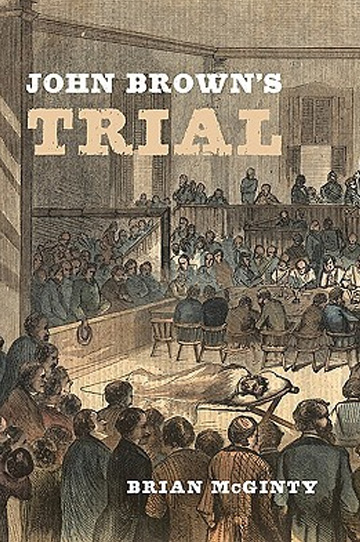
John Brown’s Trial
January 16, 2010 | The Barnes & Noble Review
Eight days after the militant abolitionist John Brown was arrested while raiding the federal armory at Harpers Ferry in 1859, he stood trial for treason and murder in a Virginia court. Brian McGinty persuasively contends that Brown’s trial was even more consequential than the raid itself — for had he died during the fighting, he would have been easier to ignore. But with the prosecution came an opportunity to defend, coolly and eloquently, his audacious attack on slavery, transforming him from kook to martyr — the “meteor of the war,” in Melville’s phrase. McGinty offers a concise and engaging survey of the trial, but despite his enthusiasm, it presented only one legally interesting issue: whether Virginia could prosecute a non-resident for treason, since that crime is defined as the betrayal of an allegiance — and a non-resident presumably owes none. The trial’s real significance was in human and political terms. Reporters arrived from all over the country, and one of the pleasures of John Brown’s Trial is its fine collection of their lithographs and courtroom sketches. Brown took full responsibility for his actions, deploring his court-appointed lawyers’ attempts to have him declared insane and insisting that he was right to “interfere” with slavery, even violently. After the jury found him guilty and before the judge sentenced him to hang, Brown rose and made one of the great courtroom speeches in American history — Emerson ranked it alongside the Emancipation Proclamation — culminating in these unrepentant words:
Now, if it is deemed necessary that I should forfeit my life for the furtherance of the ends of justice, and mingle my blood further with the blood of my children, and with the blood of millions in this slave country whose rights are disregarded by wicked, cruel, and unjust enactments, I say let it be done.